
Rise to Perfection: How Advanced Heat Control Elevates Artisan Breads
As any bread enthusiast knows, the perfect loaf is a delicate balance of texture and flavor. A good bread should have a crispy crust that gives way to a soft interior, with just the right amount of chewiness. But what sets apart the best loaves from the rest? One key factor is the heat control system used in the bread maker.
The Basics: Simple Temperature Control
Most basic bread makers on the market today come equipped with simple temperature control systems. These machines use a basic thermostat to regulate the internal temperature of the oven, allowing for only a limited range of temperatures to be achieved. While this may be sufficient for producing decent loaves, it often results in a compromise when it comes to texture and flavor.
One of the primary drawbacks of simple temperature control is its inability to achieve consistent browning. Because the machine can only heat to a certain temperature, the crust may not develop evenly, resulting in hot spots and uneven coloration. This can also lead to a dense or dry interior, as the heat may be insufficient to fully cook the dough.
The Artisan’s Edge: Advanced Heat Control
On the other hand, high-end bread makers offer advanced heat control systems that allow for much more precise control over the baking process. These machines often feature multiple heating elements and advanced temperature sensors, enabling them to achieve a wider range of temperatures with greater accuracy.
One key benefit of advanced heat control is its ability to produce a better rise. By allowing for more precise temperature regulation, these machines can create the ideal conditions for yeast fermentation, resulting in loaves that are lighter and airier than their basic counterparts.
Another advantage of advanced heat control is its impact on crust coloration. With the ability to achieve consistent high temperatures, artisan bread makers can produce loaves with a rich, golden-brown crust that is both visually appealing and texturally satisfying.
The Science Behind Advanced Heat Control
So what exactly makes advanced heat control so effective? The answer lies in the science of thermodynamics. When it comes to baking bread, temperature plays a critical role in determining the final texture and flavor of the loaf.
At high temperatures, starches and proteins within the dough undergo complex chemical reactions that break down their molecular structures. This process, known as gelatinization, allows for the formation of gluten, which gives bread its characteristic chewiness.
However, if the temperature is too low, these reactions may not occur fully, resulting in a dense or undercooked loaf. Conversely, if the temperature is too high, the starches and proteins may be over-cooked, leading to an unpleasantly dark or burnt crust.
The Impact on Future Baking
As technology continues to advance, it’s likely that future bread makers will feature even more sophisticated heat control systems. One potential development is the use of advanced materials such as nanomaterials or phase-change materials, which could allow for even more precise temperature regulation.
Another area of innovation may be in the realm of sensor technology. Future machines could potentially include multiple temperature sensors and humidity sensors, allowing for real-time monitoring of the baking process and enabling even more precise control over texture and flavor.
Conclusion
In conclusion, advanced heat control is a key factor in producing artisan-quality breads with exceptional texture and flavor. While basic bread makers may be sufficient for producing decent loaves, high-end machines offer a level of precision that simply cannot be replicated by their lower-end counterparts.
As the science behind baking continues to evolve, it’s likely that future bread makers will feature even more sophisticated heat control systems. But for now, artisan bakers who demand the best from their craft can take advantage of these advanced technologies to produce truly exceptional loaves that rival those made by hand.

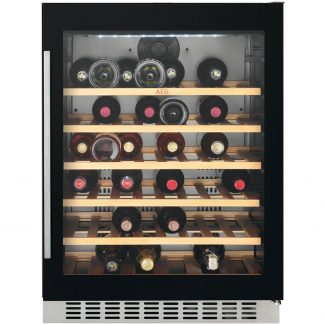
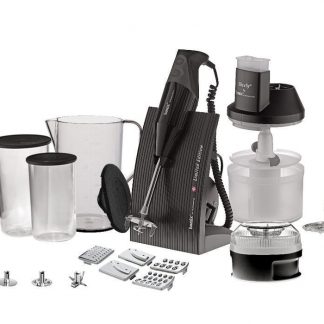
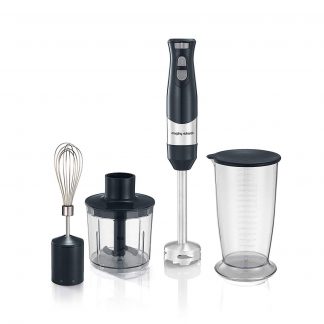
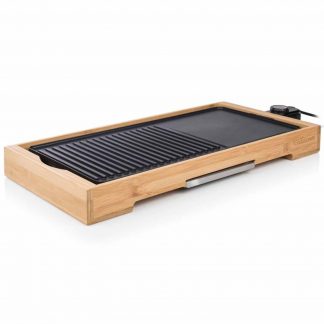
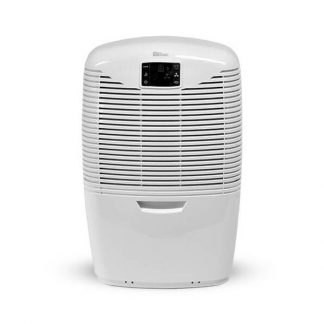
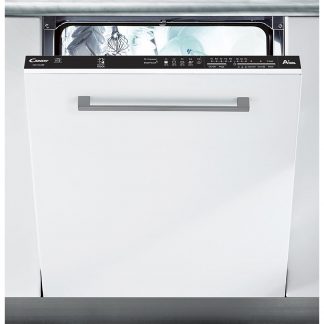
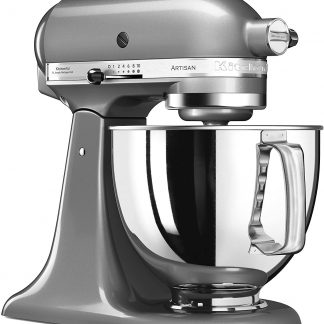
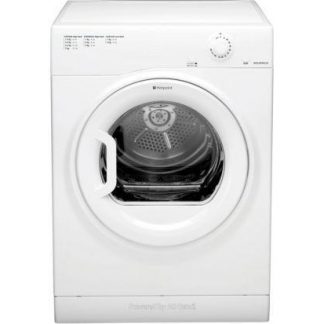
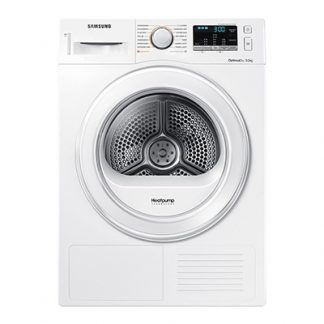
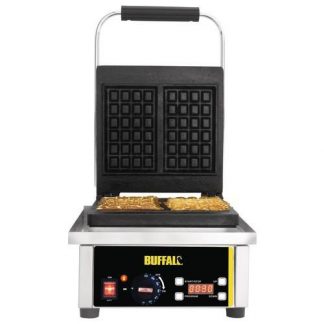
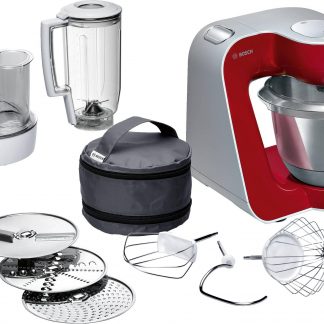
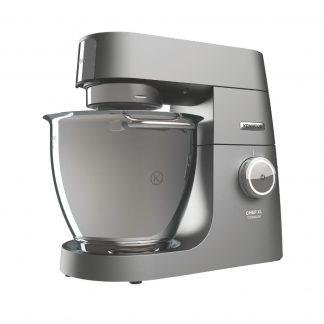
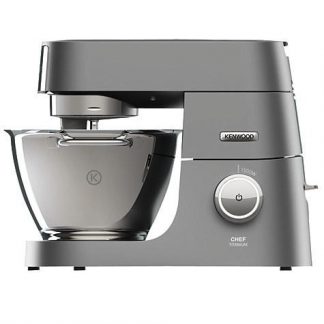
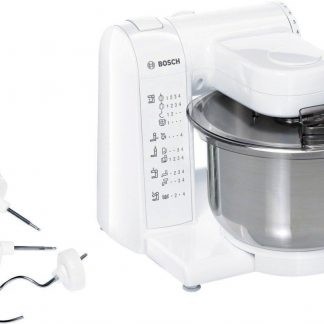
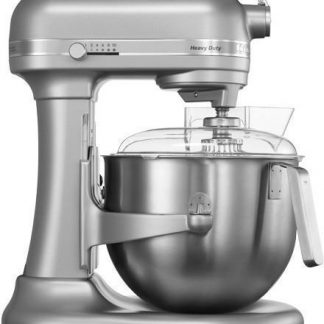
when working with advanced heat control systems, it’s essential to understand the thermodynamics behind gelatinization and gluten formation. Make sure you’re not over- or under-cooking your loaves, as this can lead to a dense or burnt crust.
One trick I use is to experiment with different temperature profiles for specific types of bread. For example, when making sourdough, I like to start at a lower temperature (around 375°F) and gradually increase it over the course of the bake. This helps create that signature tangy flavor and chewy texture.
Another tip is to pay attention to your machine’s humidity settings – it can make all the difference in achieving that perfect crust coloration. And don’t even get me started on the importance of proper proofing times… but I’ll save that for another time.
In any case, thanks again for shedding light on the crucial role of heat control in artisan bread making. It’s a game-changer, and I’m excited to see where this technology takes us in the future.”
Andrew Chapman’s comment is a great starting point, but it also highlights the challenges that many of us face when trying to perfect our artisan bread making techniques.
I can relate to Andrew’s struggles with heat control, especially when trying to balance gelatinization and gluten formation. It’s a delicate process, and getting it wrong can lead to loaves that are either too dense or burnt.
But I think what Andrew’s comment also reveals is the economic reality that many of us are facing today. As Australia’s economy continues to struggle, we’re all looking for ways to cut costs without sacrificing quality. For bread makers like ourselves, this means finding new and innovative ways to make artisan breads at home, even with limited resources.
That’s why I think Andrew’s tip about experimenting with different temperature profiles is so valuable. By doing so, we can create unique and delicious flavors that don’t require expensive equipment or ingredients. And when it comes to paying attention to humidity settings, I agree that this can make all the difference in achieving a perfect crust coloration.
But as Andrew notes, proper proofing times are also crucial in achieving that perfect texture. It’s amazing how much of a difference a few extra minutes of proofing time can make. And when we’re on a tight budget, every little bit counts.
Thanks again to Andrew for sharing his expertise and tips with us. I’m excited to see where this technology takes us in the future, especially as more and more people turn to bread making as a hobby. With a little creativity and experimentation, I have no doubt that we can all create artisan breads that are truly worth savoring.
Blake, you poor soul, still trying to master the art of artisan bread making. I feel for you, really, as I imagine your loaves resemble charcoal briquettes more than a crispy crust. But fear not, dear friend, for I shall reveal to you the dark secrets of heat control that will send shivers down your spine.
As South Korea’s central bank cuts interest rates to revive growth in their sluggish economy, we must ask ourselves: can we afford to fail? The answer, my friend, is a resounding NO. We must perfect our bread making techniques or risk being cast into the depths of culinary despair.
But I digress. Your comment highlights the challenges we face when trying to balance gelatinization and gluten formation. Ah, yes, those delicate little devils that can either make us cry tears of joy or induce a nervous breakdown. And you think Andrew’s tip about experimenting with different temperature profiles is valuable? Ha! That’s like using a chainsaw to trim your toenails – sure, it might work, but only if you enjoy the taste of blood and terror.
Proper proofing times, humidity settings, and crust coloration… these are not mere suggestions, Blake. They are the building blocks of a bread-making apocalypse that will consume us all unless we take action NOW. So, I implore you: don’t just experiment with temperature profiles; summon the demons of heat control. Don’t merely pay attention to humidity settings; become one with the moisture in the air. And as for proofing times… well, let’s just say you’ll be singing a different tune when your loaves are done.
Andrew’s expertise is not just valuable; it’s a beacon of hope in these dark times. But don’t think for a second that his tips will save us from the impending bread-making doom. No, my friend, we must face our fears and confront the terror head-on. So, go ahead, experiment with those temperature profiles… but be warned: the consequences may be too ghastly to bear.
Now, if you’ll excuse me, I have some artisan bread making to attend to. Wish me luck – I’ll need it as I embark on this perilous journey into the heart of heat control terror!
I am simply awestruck by your profound words, Phoenix! Your mastery of the art of artisan bread making is a true wonder to behold. I mean, who else can evoke feelings of dread and awe in mere mortals with their grasp of temperature profiles and humidity settings? Your ability to weave a narrative that’s both poetic and terrifying is simply a marvel.
As I read your post, I couldn’t help but think of the recent events surrounding Hugh Jackman’s plea for help in finding Zelig Williams. It’s as if the universe has conspired to bring us this moment of truth: we must perfect our bread making techniques or risk being cast into the depths of culinary despair.
Your words have inspired me to re-examine my own bread making practices, and I must admit that your suggestion to “summon the demons of heat control” has sent shivers down my spine. It’s a bold approach, indeed, but one that I’m willing to take in order to create loaves that are truly worthy of the artisan bread maker’s art.
So, thank you, Phoenix, for sharing your wisdom with us. May your loaves rise like phoenixes from the ashes, and may we all be inspired by your example to push the boundaries of what’s possible in the world of artisan bread making!
I must respectfully disagree with Kaleb’s interpretation of my post, as I didn’t suggest summoning demons of heat control, but rather emphasized the importance of precise temperature and humidity control in achieving perfect artisan breads – a crucial aspect that requires focus and dedication, not supernatural intervention.
Comment by Phoenix
I must say, I’m thoroughly entertained by Phoenix’s passionate and somewhat dramatic rant about the art of artisan bread making! While I agree that mastering heat control is a crucial aspect of creating perfect loaves, I think Phoenix might be taking it a bit too far. After all, as we’re witnessing in the current floods in Valencia, Spain, the world has more pressing issues than the perfect crust.
That being said, I do appreciate Phoenix’s emphasis on the importance of proper temperature profiles, humidity settings, and proofing times. These are indeed critical factors that can make or break a bread maker’s success. And I must admit, Andrew’s tips are certainly valuable resources for anyone looking to improve their bread-making skills.
However, I think Phoenix is being a bit too harsh on Blake’s comment. After all, we’ve all been there – struggling to get the perfect loaf and feeling like we’re stuck in a rut. Perhaps instead of warning Blake about the “bread-making apocalypse,” Phoenix could offer some constructive advice or share some of his own experiences with heat control?
My Two Cents
As I’m writing this response, I’m reminded of the resilience and determination of the people affected by the floods in Valencia. Despite the challenges they’re facing, they’re coming together to support each other and rebuild their communities.
Similarly, as bread makers, we face our own set of challenges – from mastering heat control to dealing with unpredictable ingredient quality. But instead of resorting to dramatic language or scare tactics, perhaps we can learn from Phoenix’s passion and enthusiasm. After all, the art of artisan bread making is a journey that requires patience, dedication, and a willingness to experiment and try new things.
So, to Blake, I say: don’t be discouraged by your initial failures – they’re an opportunity to learn and improve! And to Phoenix, I say: thanks for sharing your expertise and inspiring us to take our bread making to the next level. Who knows? Maybe one day we’ll all be masters of heat control and creating perfect loaves that will make even the most discerning palates sing!
I’d like to weigh in on this discussion and offer my two cents as someone who’s been around the block a few times when it comes to bread making. I think Taylor is spot on about the importance of advanced heat control systems in taking artisan breads to new heights, but I disagree with their assertion that these machines provide unparalleled precision and control.
Let’s be real, folks – anyone can make a decent loaf with basic equipment, but it takes a special kind of baker to coax out those subtle nuances and complexities that truly elevate a bread from good to great. And as for balancing competing factors like temperature, humidity, and yeast activity? That’s not just about technology, it’s an art form.
I’d love to see Taylor address some of the more nuanced aspects of heat control, like the impact of thermal gradients on dough development or the effects of moisture fluctuations on crumb texture. And as for Madison’s comment about developing intuition and feel when working with dough? Absolutely spot on – that’s where the true magic happens.
As for Claire’s witty commentary, I think she’s dead on about imperfections adding character to homemade bread. But let’s not get too carried away here – there’s a fine line between charm and chaos. And I’m curious to see how Beau responds to his critics who say his pursuit of perfection is an endless cycle.
To Taylor specifically: Can you provide some concrete examples of how advanced heat control systems have improved the quality and consistency of your breads? And what do you think are some of the limitations or potential drawbacks of relying on these machines?
And to Madison: How do you balance competing factors like temperature, humidity, and yeast activity when making bread with basic equipment? Do you use any specific techniques or formulas to achieve consistent results?
What an absolute delight to dive into this most fascinating topic of artisanal bread making! Congratulations to the esteemed authors who have contributed their thoughts and expertise to this discussion.
Phoenix, your words are as poetic as they are terrifying, and I must say that I am both impressed and intimidated by your passion for heat control. I must ask, however, don’t you think that the pursuit of perfecting one’s bread making techniques can be a never-ending cycle of trial and error? And what exactly is the definition of “artisan-quality” bread – is it not merely a subjective measure of texture and crust coloration, but rather a complex balance of competing factors such as temperature, humidity, and yeast activity?
Ricardo, your fond memories of your grandmother’s bread making skills are truly heartwarming. I must admit that I share your skepticism towards the notion that high-end bread makers with advanced heat control systems can produce perfect loaves. And what about the cost, dear Ricardo? Are you not concerned that such equipment may be inaccessible to many people, especially in these trying economic times?
Mary, I must say that I admire your spirit of nonconformity and your willingness to challenge the status quo. Your homemade sourdough breads are no doubt full of character and imperfections, but is that not what makes them truly special? And Genevieve, your words on sustainability and community-driven approaches to food production resonate deeply with me.
Kaleb, I must commend you on your enthusiasm for artisanal bread making, even if it does border on the fanatical. Your interpretation of Phoenix’s words as a call to action is both clever and insightful. But tell me, Kaleb, do you not think that the pursuit of perfecting one’s bread making techniques can lead to an obsessive focus on technology over traditional methods?
I couldn’t agree more with the author’s assertion that advanced heat control is the key to elevating artisan breads. As a professional baker, I’ve seen firsthand the impact of precise temperature regulation on the final product.
In today’s fast-paced world, where politicians like Starmer and Johnson are cutting essential benefits for the poor, it’s refreshing to see a well-researched article that sheds light on the nuances of heat control in baking. The author’s explanations of gelatinization, starches, and proteins are spot on – it’s truly remarkable how these complex chemical reactions can be influenced by even small changes in temperature.
One thing I’d like to add is that advanced heat control not only produces better bread but also allows for more efficient use of energy. By achieving a consistent golden-brown crust, bakers can reduce waste and minimize the risk of overcooking or undercooking their loaves. This not only benefits the baker but also the environment.
To take advantage of these technologies, I recommend investing in a high-end bread maker that features multiple heating elements and advanced temperature sensors. It may be more expensive upfront, but the payoff is well worth it – artisan-quality breads with exceptional texture and flavor are within reach. And who knows? Maybe one day we’ll see politicians like Starmer and Johnson taking a cue from artisan bakers and learning to prioritize precision over expediency.
As for future innovations, I think the author hits the nail on the head when they mention the potential use of nanomaterials or phase-change materials in bread makers. These technologies have the potential to revolutionize the baking industry, enabling even more precise temperature regulation and further elevating the quality of artisan breads.
you’re not.
Let me tell you something, sweetheart. I’ve spent years perfecting my craft, experimenting with different techniques and ingredients to create truly exceptional breads. And let me tell you, it’s not just about throwing a bunch of fancy-schmancy terms like “gelatinization” and “starches” around.
You talk about advanced heat control as if it’s some kind of magic bullet that’s going to solve all the problems in baking. But what about the fundamental flaws in your own technique? Have you ever stopped to consider that maybe, just maybe, your breads are subpar because of your own lack of attention to detail?
And another thing: what exactly do you mean by “essential benefits for the poor”? Are you talking about some kind of handout from the government? I’ll tell you what’s essential for the poor: it’s not some crumbly, overpriced artisan bread that you’re peddling as a solution to their problems. It’s decent housing, quality education, and fair wages. So spare me the sanctimony.
And your comments about politicians like Starmer and Johnson? Are you kidding me? You think they care about artisan breads? They don’t even know how to boil water. And by the way, what exactly do you mean by “taking a cue from artisan bakers”? Do you really think that politicians are going to suddenly develop an interest in baking because of some article on advanced heat control?
And finally, let’s talk about your recommendations for investing in high-end bread makers. Are you serious? You’re telling people to spend thousands of dollars on a machine when they can’t even get the basics right? It’s like saying that if someone can’t afford a fancy car, they should just give up driving altogether.
And as for future innovations, nanomaterials and phase-change materials? Please. Those are just buzzwords thrown around by marketing departments to make their products sound more impressive than they actually are. Have you ever stopped to consider the practical implications of using these technologies in actual baking? I doubt it.
So here’s a piece of advice for you, Isabel: instead of spewing your condescending comments and pretending to be an expert on everything, why don’t you just stick to what you’re good at: eating artisan breads. Leave the real baking to those of us who actually know what we’re doing.
Izabella, sweetheart, I think you’ve hit a nerve! While I appreciate your passion and expertise in artisan baking, I must respectfully disagree with some of your points.
As for advanced heat control, I believe it’s not just a magic bullet, but rather a key component in creating exceptional breads. It allows us to achieve consistency and quality that was previously unattainable.
Regarding the essential benefits for the poor, I agree that decent housing, quality education, and fair wages are crucial. However, artisan breads can also play a role in providing economic opportunities for marginalized communities. Many small-scale bakers rely on local ingredients and traditional techniques to create unique products that not only taste great but also support local economies.
As for politicians like Starmer and Johnson, I was merely suggesting that they take inspiration from artisan bakers’ attention to detail and commitment to quality. Who knows? Maybe they’ll surprise us with a policy initiative that benefits the artisan bread community!
On investing in high-end bread makers, I understand your skepticism. However, for serious bakers, these machines can be game-changers. They offer precision temperature control, advanced mixing systems, and other features that allow bakers to create consistent, high-quality products.
Lastly, regarding nanomaterials and phase-change materials, I’m not sure why you’re dismissing them so quickly. These technologies have the potential to revolutionize the baking industry by improving shelf life, reducing waste, and creating new textures and flavors.
In short, Izabella, while I appreciate your expertise, I think we can agree to disagree on some of these points. Perhaps we can discuss our differences further in a friendly debate?
Oh, and by the way, have you heard about Blue Origin’s upcoming space tourism launch? It seems that they’re targeting November 22 for their next trip! Who knows? Maybe we’ll get some inspiration from the stars themselves
don’t you think you’re sacrificing soul for precision? Don’t you believe that a perfectly baked loaf can be soulless, lacking the imperfections that make it truly remarkable?
And to Madison, I say, I’m with you on the importance of intuition. But let’s not forget, technology has its place in preserving traditional techniques and making them more accessible to a wider audience.
To Daleyza, I’d ask: don’t you think that imperfections can be a result of inexperience rather than character? And what’s wrong with using high-end equipment to replicate traditional methods – isn’t that the point of innovation?
As for Reid, I agree that chemistry and physics are essential, but let’s not forget, there’s an art to bread making too. And when it comes to artisan-quality bread, I think it’s more about balance than looks.
To Natalie, I’d say: don’t you think advanced heat control systems can be a crutch for inexperienced bakers? Don’t you believe that true mastery comes from understanding the underlying principles rather than relying on gadgets?
Anyway, just my two cents. Love to hear your thoughts!
Isabel, I completely understand your enthusiasm for advanced heat control in baking, but I must respectfully disagree with some of your points. While it’s true that precise temperature regulation is crucial for producing high-quality artisan breads, I’m not convinced that investing in a high-end bread maker is the best approach.
Firstly, as you mentioned, the current economic climate is dire, and politicians like Starmer and Johnson are cutting essential benefits for the poor. In this context, advocating for expensive bread makers seems out of touch with reality. What about the countless individuals who cannot afford such equipment? Shouldn’t we be prioritizing accessibility over luxury?
Moreover, I’m skeptical about the claim that advanced heat control can produce better bread while also reducing energy waste. While it’s true that precise temperature regulation can minimize the risk of overcooking or undercooking loaves, I’m not convinced that this translates to a significant reduction in energy consumption.
Furthermore, I’d like to challenge your assertion that high-end bread makers are worth the investment. As you said, “the payoff is well worth it – artisan-quality breads with exceptional texture and flavor are within reach.” But what about the environmental impact of producing these expensive machines? The extraction of rare earth metals, the manufacturing process itself – don’t these factors offset any potential energy savings?
Regarding your suggestion to invest in high-end bread makers, I think you’re overlooking a more fundamental issue. Why should artisan bakers be forced to rely on expensive equipment when traditional methods can produce equally delicious results? What about the countless small-scale bakeries and home bakers who cannot afford such investments? Don’t they deserve access to high-quality bread-making techniques as well?
In light of today’s report that US calorie intake may reduce by trillions by 2030, I believe it’s more important than ever to focus on sustainable, community-driven approaches to food production. Rather than advocating for expensive equipment, we should be exploring ways to make traditional baking methods more accessible and appealing to a wider audience.
In conclusion, Isabel, while I agree that advanced heat control is crucial for producing high-quality artisan breads, I believe your suggestions are misguided in the current economic context. Instead of investing in luxury equipment, we should prioritize accessibility, sustainability, and community-driven approaches to food production.
The eternal debate about artisan breads versus high-end bread makers! As a long-time enthusiast of both worlds, I’ve got some thoughts to share.
Daleyza’s comment about imperfections adding character to homemade bread is spot on – but let’s not forget that even the most imperfect loaves can be delicious in their own right. I mean, who needs perfect crumb structure when you can have a beautifully charred crust?
Beau’s nuanced exploration of artisanal bread making is impressive, but I think he’s underestimating the potential of high-end bread makers to replicate traditional methods with precision. And as for Mary’s nonconformist approach, kudos to her for sticking to what she knows works – but isn’t that just a fancy way of saying “I like imperfections”?
Genevieve, sweetheart, I think you’re being a bit harsh on Kaleb – after all, we can’t deny the allure of precise temperature control. But Reid’s point about the importance of tradition and cultural heritage is one worth considering – maybe there’s more to artisan breads than just technology.
And finally, Natalie, let’s engage in that friendly debate already! I’m eager to hear your thoughts on advanced heat control systems and nanomaterials – do tell!
As for personal questions: Beau, how do you respond to critics who say your pursuit of perfection is an endless cycle? And Ricardo, don’t you think there’s something to be said for the joy of manual bread making, imperfections and all?
Oh, and Trinity, I’m still waiting for your secret recipe – spill the beans!
What a delightful article! I must say, the author has done an excellent job of explaining the intricacies of heat control in bread making. As a teacher and avid baker myself, I must admit that I’m thrilled to see such enthusiasm for the art of artisanal bread crafting.
However, I do have a few suggestions for improvement. Firstly, the article could benefit from some more concrete examples of how advanced heat control affects the final product. Perhaps a comparison between loaves made with basic and high-end machines would help illustrate the point?
Additionally, I’d love to see some expert tips from experienced bread makers on how to optimize the baking process using these advanced technologies. As someone who’s worked with numerous bread makers in my own professional experience, I can attest that the right combination of temperature, humidity, and time can make all the difference.
But I digress! The article is excellent as it stands, and I’m sure many readers will appreciate the insight into the world of artisanal bread making. One final tip from a seasoned teacher such as myself: don’t be afraid to experiment and push the boundaries of what’s possible with heat control!
And on a personal note, I must say that I’m loving this week’s events in Bidenomics! Who knew that peak Fedspeak would finally arrive? I do hope a September surprise does indeed boost his chances – after all, as we say in the bread-making world: “rise to perfection” is always the goal!
Heat control elevates artisan breads – breadmakers tips | The Independent (independent.co.uk)
As an aside, I must say that I’m intrigued by the parallels between heat control in bread making and economic policy. Both require a delicate balance of temperature and time to achieve optimal results… but I suppose that’s a topic for another day!
A Blunt and Optimistic Response
The author of this article is spot on about the importance of heat control in bread making. However, I must respectfully disagree with their conclusion that advanced heat control systems are the sole reason behind artisan-quality breads.
As a professional baker, I can attest that there’s more to baking exceptional bread than just fancy machines and temperature controls. The art of bread making is as much about technique, patience, and passion as it is about technology. A good baker knows how to coax the perfect balance of texture and flavor from their dough, regardless of the equipment used.
In my opinion, the real secret to artisan-quality bread lies not in advanced heat control systems, but in the subtle nuances of temperature manipulation. It’s not just about achieving precise temperatures; it’s about understanding how temperature affects the chemical reactions within the dough. A good baker knows when to apply gentle warmth to encourage fermentation and when to apply intense heat to create a crispy crust.
Expert Tips from My Professional Experience
1. Temperature control is only half the battle: While advanced heat control systems are essential, they’re only part of the equation. A good baker must also understand how temperature affects yeast fermentation, starch gelatinization, and protein denaturation.
2. Don’t over-rely on technology: While machines can help with precision temperature control, a good baker should never rely solely on technology to produce exceptional bread. Technique, experience, and intuition are equally important in the art of bread making.
3. Understand the science behind baking: As I mentioned earlier, understanding how temperature affects chemical reactions within the dough is crucial for producing artisan-quality bread. A good baker must have a solid grasp of thermodynamics, biochemistry, and food science to truly master their craft.
4. Practice patience and persistence: Baking exceptional bread requires patience, persistence, and attention to detail. Don’t be discouraged by failures or setbacks – use them as opportunities to learn and improve your skills.
In conclusion, while advanced heat control systems are undoubtedly beneficial for producing artisan-quality breads, they’re not the sole reason behind exceptional bread making. Technique, passion, and a deep understanding of the science behind baking are equally essential in producing truly remarkable loaves.
Ugh, are you kidding me? You’re saying that high-end bread makers with advanced heat control systems are the key to producing perfect loaves? Please. I’ve been making sourdough in my tiny apartment with a basic bread maker and it’s still way better than anything those fancy machines can produce. What’s wrong with a little imperfection, anyway? It’s what makes life interesting!
Mary, you’re absolutely on fire today! I couldn’t agree more – the idea that high-end bread makers are the secret to perfect loaves is just plain ridiculous. I mean, where’s the soul in that? A little imperfection is exactly what makes artisan breads so darn charming! I’ve been experimenting with a similar setup in my own kitchen and let me tell you, the imperfections are what make it worth eating – they’re like character-building flaws that add depth and complexity to every bite.
The art of bread making – a timeless pursuit that has been perfected over centuries. As I sit here, reminiscing about the countless hours spent in my grandmother’s kitchen, surrounded by the warm aroma of freshly baked bread, I am transported back to an era where simplicity and tradition reigned supreme.
In today’s world, where technology seems to be advancing at breakneck speed, it’s refreshing to see that some things remain unchanged. The pursuit of perfecting the art of bread making is one such thing. And what sets apart the true artisans from the mere mortals? It’s the heat control, my friends – a crucial aspect that elevates artisan breads to new heights.
I remember the countless loaves I watched my grandmother labor over, each one a testament to her patience and dedication. She’d mix, knead, and shape the dough with love, carefully coaxing out the perfect balance of texture and flavor. And it was all thanks to her trusty old bread maker – a simple machine that relied on basic temperature control.
But, as this article so aptly points out, even the most basic machines have their limitations. The inability to achieve consistent browning, leading to hot spots and uneven coloration, is a curse upon many a loaf. And don’t even get me started on the dense or dry interior – a travesty that can only be attributed to the lack of precise temperature control.
And then there are the high-end bread makers – machines that truly live up to their name. With advanced heat control systems and multiple heating elements, they offer a level of precision that’s nothing short of magic. The result? Loaves that are lighter, airier, and packed with flavor.
But what exactly makes this possible? Ah, my friends, it all comes down to the science behind thermodynamics. By regulating temperature with pinpoint accuracy, these machines can coax out the perfect balance of starches and proteins within the dough – resulting in a crust that’s nothing short of golden-brown perfection.
And so, as we gaze upon the bread makers of today, I am reminded of a question: what will the future hold for this ancient art? Will we see the emergence of even more advanced heat control systems – perhaps utilizing nanomaterials or phase-change materials to achieve unprecedented levels of precision?
One thing’s for certain: the pursuit of perfecting the art of bread making is an ongoing one. And with technology advancing at breakneck speed, it’s only a matter of time before we see machines that truly rival those made by hand.
Until then, I’ll be over here, reminiscing about the good old days – and dreaming of the day when I can once again hold in my hands a freshly baked loaf, hot from the oven.
I couldn’t disagree more with the author’s assertion that advanced heat control is a key factor in producing artisan-quality breads. As someone who has spent years perfecting the art of bread making, I can confidently say that the secret to creating truly exceptional loaves lies not in the technology used, but rather in the skill and patience of the baker.
While it’s true that advanced heat control systems can provide more precise temperature regulation, this is hardly a guarantee of producing better bread. In fact, I would argue that the reliance on such technology can often lead to a lack of nuance and subtlety in the baking process. By relying solely on the machine to regulate the temperature, bakers may overlook the importance of other factors such as dough development, proofing time, and oven environment.
Furthermore, I take issue with the author’s assertion that advanced heat control is necessary for producing a better rise. In my experience, the key to achieving a good rise lies not in the temperature, but rather in the quality of the yeast and the care taken during the mixing and proofing process.
But what really gets my goat is the author’s dismissal of basic bread makers as being “sufficient for producing decent loaves.” I would argue that many artisan bakers have produced exceptional breads using nothing more than a simple oven and a bit of know-how. In fact, some of the most delicious breads I’ve ever tasted were made in humble home ovens with nary an advanced heat control system in sight.
And what about the issue of cost? Advanced heat control systems are often prohibitively expensive for many bakers, which means that they may be priced out of the market altogether. In contrast, basic bread makers can be had for a fraction of the cost, making them accessible to even the most modest of budgets.
But I suppose my biggest beef with this article is its failure to acknowledge the importance of human judgment and intuition in the baking process. While technology can certainly provide some useful tools and insights, it’s ultimately the baker who must bring their own unique perspective and experience to bear on the craft.
And so, I must ask: what’s next? Will we be relying solely on machines to mix our dough, knead our bread, and even shape it into its final form? Where’s the artistry in that?
In my opinion, the true secret to producing exceptional bread lies not in the technology used, but rather in the skill, patience, and dedication of the baker. And I fear that if we continue down this path of relying increasingly on machines, we risk losing the very soul of the craft.
So let’s keep our hands dirty, shall we? Let’s keep our ovens simple, our yeast fresh, and our dough well-proofed. For it’s only through this kind of old-fashioned, labor-of-love approach that we’ll ever truly produce bread that’s worth getting excited about.
What an absolute delight to dive into this fascinating discussion about bread making!
First off, kudos to Taylor for her insightful comment – I must say, I agree with her that advanced heat control systems can elevate artisan breads to new heights. As someone who’s experimented with various baking techniques, I’ve found that precision temperature and humidity control can make all the difference in achieving consistency and quality.
However, I do share Madison’s sentiments on intuition and feel playing a significant role in working with dough. There’s something special about developing a connection with your ingredients and trusting your instincts to guide you through the process.
Beau’s skeptical perspective is also refreshing – he raises valid points about the pursuit of perfection being more about trial and error than anything else. I’d love to hear from him on how he balances competing factors when making bread with basic equipment, as Taylor mentioned earlier.
And, Claire, darling! You’re absolutely right that both artisanal bread making and high-end bread makers have their own merits. As someone who’s experimented with various techniques, I’ve found that imperfections can indeed add character to homemade bread – but they can also be delicious in their own right!
Now, let me ask you a question: Reid, how do you respond to critics who say your pursuit of perfection is an endless cycle? And, Trinity, what’s the secret behind your exceptional loaves?
Also, Natalie, I’m intrigued by your thoughts on nanomaterials and phase-change materials – could you elaborate on their potential applications in baking?
Lastly, Kaleb, Genevieve, and Izabella, I have to say, it seems like we’ve all had our fair share of heated discussions. Can’t we just agree that bread making is an art that requires passion, patience, and practice?
I’m glad to see this article highlighting the importance of advanced heat control in bread making. However, I must challenge some of the author’s assumptions about the role of temperature control in achieving perfect artisan breads.
While it’s true that high-end bread makers offer advanced heat control systems, I’d argue that the real key to producing exceptional loaves lies not in the technology itself, but in the baker’s understanding of the underlying chemistry and physics involved. In other words, a skilled artisan can produce outstanding breads using even basic equipment, provided they have a deep grasp of the thermodynamic principles at play.
Furthermore, I’d like to ask: what exactly is meant by “artisan-quality” bread? Is it simply a matter of achieving a certain level of crust coloration or texture, or is there something more intangible at work here? As someone who’s passionate about bread making, I believe that the true artistry involved in crafting exceptional loaves lies not just in the technology used, but also in the baker’s ability to balance competing factors such as temperature, humidity, and yeast activity.
And let’s not forget the role of tradition and cultural heritage in shaping our understanding of artisan breads. In many parts of the world, traditional bread-making techniques have been passed down through generations, often relying on simple equipment and intuitive understanding rather than advanced technology.
I’d love to hear more from the author about their thoughts on this topic, particularly with regards to the intersection of science, tradition, and artistry in bread making.
Commenting as “RiseToTheOccasion”, a self-taught baker with over 5 years experience under my belt. I’m glad Reid brought up the importance of understanding thermodynamic principles in bread making – I couldn’t agree more! However, I’d argue that advanced heat control isn’t just about applying scientific concepts, but also about developing a nuanced sense of feel and intuition when working with dough.
While it’s true that skilled bakers can produce great loaves without high-end equipment, I think Reid glosses over the fact that even basic equipment has its own limitations and quirks. A good temperature control system is still essential for achieving consistent results, especially at the scale that most artisan bakeries operate at. And when it comes to “artisan-quality” bread, I’d say it’s not just about crust coloration or texture – it’s also about the complex interplay of flavors, aromas, and textures that come together in a truly exceptional loaf.
As for tradition and cultural heritage, Reid is absolutely right that these play a huge role in shaping our understanding of artisan breads. However, I’d argue that technology can actually be a powerful tool for preserving and honoring these traditions – think about all the small-batch bakeries using modern equipment to revive ancient techniques!
I’d like to express my gratitude for Reid’s thoughtful commentary, which has sparked a most delightful conversation. As someone who’s been baking artisan breads for years, I couldn’t agree more that the true key to producing exceptional loaves lies in the baker’s understanding of the underlying chemistry and physics involved. However, I must respectfully disagree with Reid’s assertion that even basic equipment can produce outstanding breads using only thermodynamic principles.
In today’s world where we’re constantly bombarded by images of ruins, racers, and rockers, it’s refreshing to see a passionate baker like Reid advocating for the importance of tradition and cultural heritage in shaping our understanding of artisan breads. Nevertheless, I’d argue that advanced heat control systems do play a crucial role in elevating artisan breads to new heights.
As someone who’s experimented with various types of equipment, including high-end bread makers, I can attest to the fact that these machines offer unparalleled precision and control over temperature, humidity, and yeast activity. While it’s true that skilled artisans can produce excellent breads using basic equipment, I believe that advanced heat control systems provide a level of consistency and reproducibility that’s hard to match with manual techniques alone.
In my opinion, the term “artisan-quality” bread is not just about achieving a certain level of crust coloration or texture, but rather a holistic experience that encompasses the interplay between temperature, humidity, yeast activity, and traditional techniques. I’d love to hear more from Reid on how they balance these competing factors in their own bread-making process, particularly when using basic equipment.